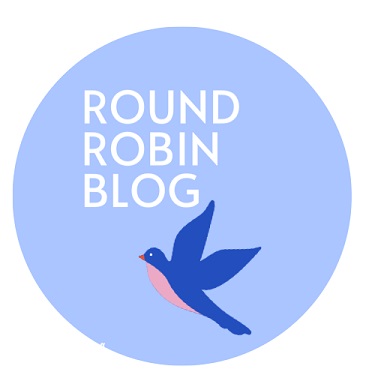It’s time for another of our authors’ Round Robins, and this month the topic is…

How important is research for your writing?
Besides writing fiction, I’m also the author of a non-fiction social history, Struggle and Suffrage in Halifax: Women’s Lives and the Fight for Equality. This book covers the period from 1800–1950. I’ve given lots of talks on my research for this history, to audiences ranging from local libraries to a confederation of Women’s Institutes.

Writing this history of women’s lives involved months of extensive research, but people in the audience are often surprised to hear how much research I also put into writing contemporary romance. After all, why the need to research the present day? (And sometimes there’s another, unspoken question: my novels are ‘only romance’. Why bother researching for this lowly genre?)
The importance of research for fiction writers
Three reasons why research is important – even for writers of ‘just romance novels’:

Reason one: You owe it to your readers to make sure your characters and the situations they find themselves in are authentic
In one of my novels I have a character with Down’s syndrome. Many years ago I worked as a carer, and one of the people I visited was a single dad, looking after his daughter with Down’s syndrome. Readers from every walk of life pick up romance novels. They are the most widely read genre. I asked myself how this father would feel if he read my book. I imagined how disappointed and upset he might be if an author hadn’t taken the trouble to at least try and understand life for his family, and portray it with some realism.
Reason two: Besides writing romance, I also edit fiction. As I tell my clients, you may think you’re writing alone in a room, but once your book is published, it’s available to the whole world.

Your readers will be experts in their own particular field – whether that’s bird-watching, or fossil-hunting, or working in a bakery, or paediatric surgery. Whatever their hobby or job, if they find the author has got the facts wrong, it will throw them out of the story. You owe it to your readers to try and portray a character or setting realistically. (And if you get the facts wrong, no matter how great your characters and plot, your reader may leave you a bad review.)
Reason three: Research can help you develop ideas. It can help you give your characters more depth and make them more compelling. By undertaking research you will be exploring new paths, and it’s by exploring that writers find inspiration.
How do you research as a fiction writer?
Besides the obvious (that is, read, read, read), here are a couple of tips for researching your novel:

Tip one: Be organised. There’s nothing worse than making a note of that thing you read in a book or saw on television, and then having no idea how to find it again when you need it.
Everyone has a way of organising notes that works for them. I’m old school, and I like a binder, with coloured index dividers, that I can flip open and look through. Even if it means printing out pages and putting them in a plastic pocket, this system works way better for me than scrolling through notes on my laptop or phone. I find this visual system generates more ideas, I can use the binder to file leaflets or maps I may have picked up, and I’m also more likely to remember the research.
Tip two: Don’t be afraid to write what you don’t know. The beauty of writing contemporary fiction is that in this age of instant streaming you can experience the lives of others all over the world. I’m too terrified of heights to ever jump out of a plane, but when my research needed it, I could write a hero who did just that by watching videos of other people leaping out with parachutes. Hooray for the internet and YouTube! (In my novel, the hero’s terror was easy to write, because I totally empathised. I just made him braver than I am!)

Tip three: Don’t be afraid to ask people to share their experience. I used to be reticent about approaching people for help with research, especially if asking for help writing a ‘lowly romance’. I expected people to laugh and turn me down. But every single stranger I ever asked for help has been delighted to tell me about their work or hobby and delighted to talk to someone who has shown an interest. And I’ve been surprised and delighted in turn to find people are genuinely interested themselves to find out more about romance writing.
Can you research too much?
Research can be fun – but sometimes the fun can be overdone.
- When research becomes procrastinating, or if you’re too worried about getting everything factually correct to actually put pen to paper, then the research is taking over the writing. Readers are interested in tension and emotion. Try writing a scene set in a period of history you’re interested in. It’s surprising how little historical detail is needed to get the scene across. Most scenes only need the lightest of touches.
Which leads to…

- Beware of dropping research in just for the sake of it. Instead of readers finding it fascinating, if it comes in the way of the scene, it may just seem clunky. (Some writers add a couple of pages of historical background at the end of the novel. If you feel readers may find your research interesting, this could be a way to get it across, without it interrupting the story.)
I once went to a talk by the queen of historical fiction, Philippa Gregory. She said when she was researching a novel set in a new-to-her time period, she spent six months solidly researching, immersing herself in that world. She then set the research aside and didn’t look at it again – she simply began writing.
Do you have any novelists you particularly admire for their research? Are you a writer? How much research do you do, and how do you carry it out? If you have any comments or tips at all, I’d love to hear them!
And if you’d like to read the other authors’ takes on this month’s topic, please click on the links below.
Victoria Chatham http://www.victoriachatham.com
Diane Bator https://escapewithawriter.wordpress.com/
Anne Stenhouse http://annestenhousenovelist.wordpress.com
Dr Bob Rich https://wp.me/p3Xihq-398
Connie Vines http://mizging.blogspot.com/
Skye Taylor http://www.skye-writer.com/blogging_by_the_sea

Leave a Reply